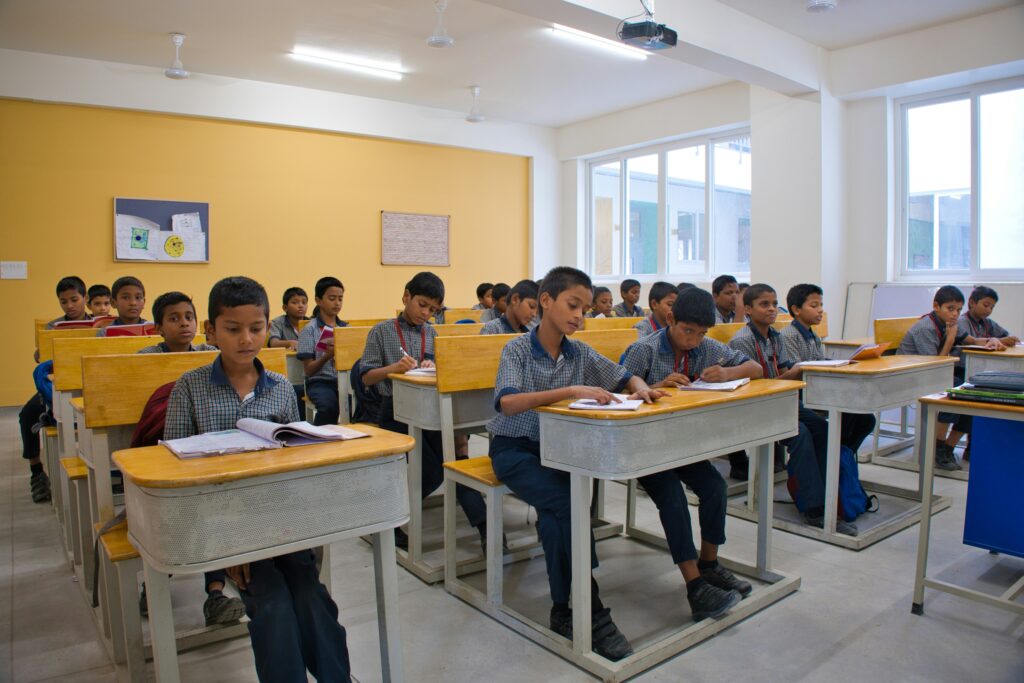Overview
This week I decided to focus on formative and summative assessment. As a future teacher this is a vital topic for me. Knowing the difference between these two types of assessment is essential. During my past couple years in the BEd program, they have thrown these words around without much explanation. I hope this blog helps you know the difference!

Photo by Haseeb Modi on Unsplash
Formative & Summative
Formative: This type of assessment is conducted throughout a learners journey or unit. These assessments give time and opportunities for feedback and revisions. This process can be formal or informal documentation, but either way it allows students to grow. Think of it as a check-in while learning. An example of formative assessment could be an English class where you submit a draft of your work to receive feedback for your good copy.
Summative: This type of assessment is usually taken at the end of a unit. It is more of a final grade where students show what they can do at the end of a unit. There is no opportunity for revision or growth as the mark you get is what you receive. Think of it as a final check after learning. An example of summative assessment is a final exam.
Here is an excellent video that explains these assessment types:
My Thinking and Experience
To be honest with you, I didn’t know the difference between these two assessment types till this class. My program would mention these words during class but I was never given a definition or example. It felt as though I was suppose to already know this information. Now I feel confident in the difference!
This coming school year I will be taking a course on assessment and evaluation for teachers. I’ve been super excited for this course as it is extremely important and relevant to me.
From what I currently know, I plan to use formative assessment more often then summative assessment in my classroom. I may be a little bias, but I hate tests. I have dyslexia, which wasn’t diagnosed till after my high school graduation. I knew for a long time that I had a learning disability, but it was expensive to be officially tested and diagnosed. Tests are nearly imposable for me as I take much longer than the average person to complete a task. I also struggle with spelling and numbers which made math or spelling tests a challenge. Then adding the time pressure onto of that with my anxiety would cause my brain to blank or shut down. Tests have never shown what I actually am capable of or what I know. Tests show what a person can memorize and students often forget the information after the test is complete. However, projects, assignments, and putting the concepts into practice are where I learn best and can show my growth. This is why I would love to have more formative assessments with my students. I believe that students being able to put learnings into practice is more important than if they can ace a timed test. Just because you can memorize information doesn’t mean you really understand it and could implement it in the real-world. As a future teacher, I hope to alleviate stress in my students by allowing them opportunities to improve once given feedback. The growth I see in a student is more vital then their test mark.
Conclusion and Questions
Thanks for reading my blog on assessments! I hope you now understand the difference between formative and summative. What kind of assessment do you prefer and if you were a teacher which kind do you see yourself using?
Hello Mady!
I really appreciate this blog post because knowing -or more-so understanding- the difference between formative and summative assessment will and is necessary for me in my career choice as well. To me, it always seems backwards: summative sounds like assessing throughout the process while formative sounds like at the very end after all the work has been formed. I do understand why formative is used to describe assessing along the way because your knowledge and skills are still being formed and summative is more like a summary at the end. For some reason it just felt backwards in my brain.
I really appreciate how you used examples in your blog post and provided some personal experiential connection as well. This can be helpful for other teachers to understand where you’re coming from and helps us to better grasp the differences with the examples you used.
I’m curious about how you will prepare your students for tests and exams to reduce anxiety and stress as much as possible. While I too prefer projects, presentations, assignments, and even papers, unfortunately tests and exams are still part of the BC Curriculum so I’m wondering what kind of preparation you will to ease your students’ worry.
Thank you for sharing this blog post!